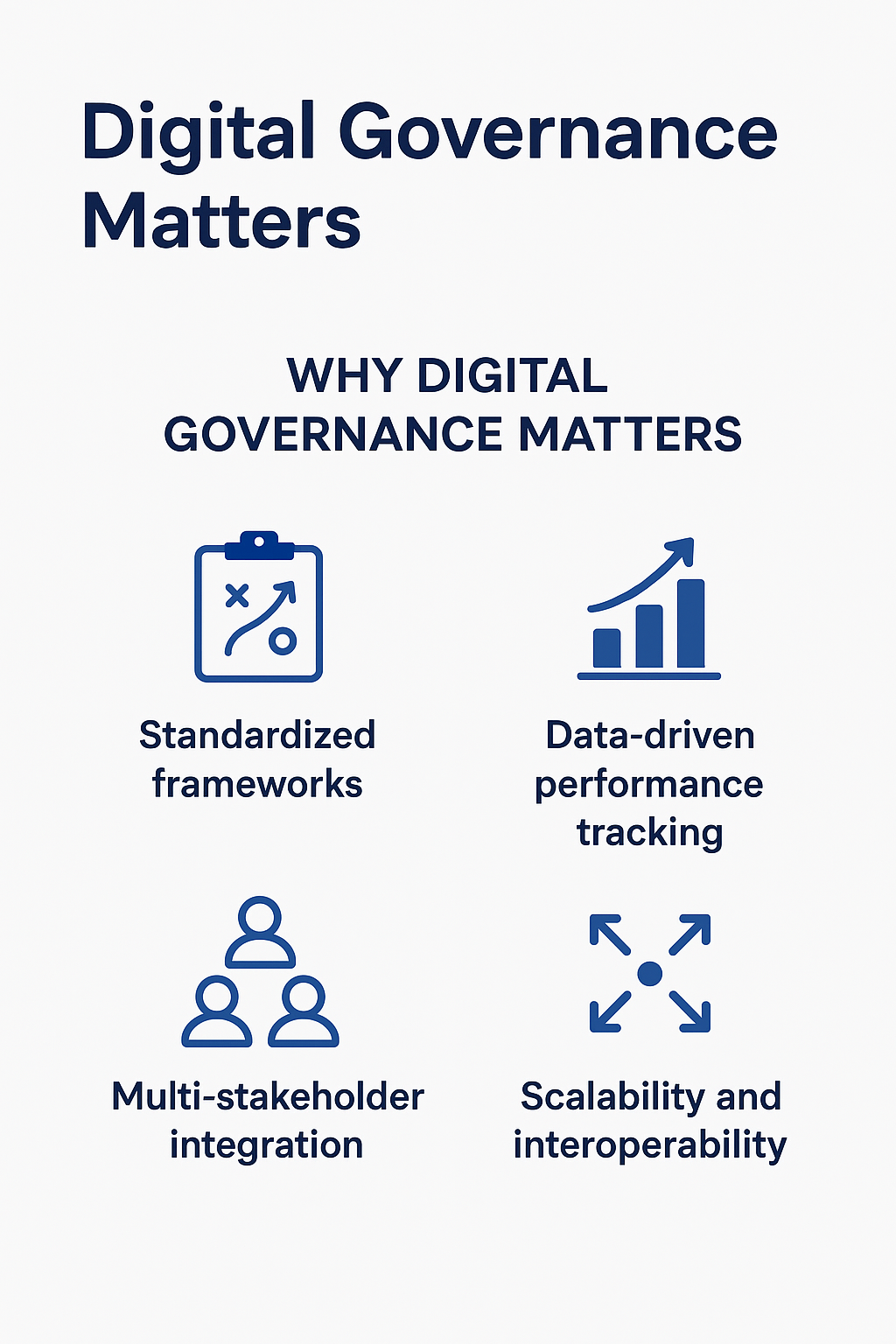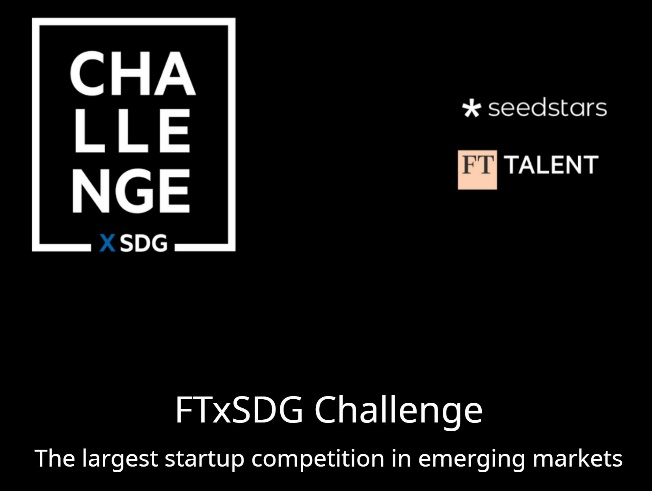Reimagining University-Industry Collaboration
Aug 22, 2025

Executive Summary
The relationship between universities and industry is undergoing a paradigm shift. With the rise of digital economies, artificial intelligence (AI), and the demand for future-ready skills, higher education institutions must evolve beyond traditional pedagogy and engage in dynamic, symbiotic partnerships with industry. Digital governance provides the framework to reimagine collaboration enabling transparency, accountability, and efficiency in building bridges between academia and enterprise.
This white paper explores the challenges, opportunities, and strategies for reimagining university-industry collaboration through governance-first digital platforms such as EDUCLO, positioning India and other emerging economies at the forefront of knowledge-driven growth.
strategic decision-making in collaborations. Its benefits include:
- Standardized frameworks for monitoring outcomes.
- Data-driven performance tracking of student employability.
- Multi-stakeholder integration for industry, academia, and regulators.
- Scalability and interoperability across institutions and industries.
By adopting governance-first digital Despite notable advances, gaps persist between academic output and industry requirements. For example, employability surveys in India suggest that less than 50% of graduates are job-ready (NASSCOM, 2022). Similarly, industries often cite limited alignment between university curricula and the evolving demands of the workplace (McKinsey & Company, 2021).
Barriers include:
- Outdated curricula misaligned with emerging skills.
- Limited platforms for knowledge and resource sharing.
- Fragmented governance structures that slow partnerships.
- Lack of transparent performance metrics.
However, challenges include:
- Unequal access to digital infrastructure.
- Fragmented policy implementation across states.
- Resistance to adopting standardized governance systems.
- Adopting a platform like EDUCLO can overcome these barriers by providing a unified governance-first digital ecosystem.
Recommendations
Strengthen Policy and Regulatory Frameworks
Governments and accreditation bodies should establish clear guidelines on digital governance standards that enable transparent collaboration between universities and industries.
Policies should include data-sharing protocols, intellectual property rights frameworks, and digital credentialing systems to reduce friction in partnerships.
Invest in Digital Infrastructure for Collaboration
Universities need platforms that support secure, real-time communication, project management, and knowledge sharing with industry.
Public-private partnerships should be incentivized to build national-level digital education ecosystems that can integrate with global innovation networks (World Bank, 2021).
Promote Skills Alignment Through Joint Curriculum Development
Institutions should work with industries to co-create modular, industry-aligned curricula hosted on governance-first digital platforms.
Digital governance tools can track emerging skill trends in real-time and update courseware dynamically, ensuring graduates are job-ready (NASSCOM, 2022).
Foster Innovation Ecosystems via Digital Governance
Establish shared innovation labs, virtual R&D centers, and startup incubators powered by governance-first digital platforms.
These ecosystems should leverage digital governance to ensure equitable access, transparent funding, and efficient IP management (OECD, 2021).
Enhance Monitoring and Accountability
Adopt blockchain-based governance systems to ensure accountability in university-industry projects.
Why Digital Governance Matters

Digital governance ensures transparency, accountability, and Transparent reporting of outcomes, such as employment rates, patent outputs, and startup creation, will strengthen trust and scalability of collaborations (Gupta & Patel, 2023).
Capacity Building and Faculty Development
Universities must invest in faculty reskilling programs that allow professors to align teaching with digital economy demands. Industry experts should be digitally integrated into classrooms through guest lectures, mentorship programs, and virtual apprenticeships (AICTE, 2022).
Global Benchmarking and Partnerships
Indian universities should benchmark their collaboration models against global best practices (e.g., Stanford-Silicon Valley, MIT-Industry partnerships).
Digital governance platforms can act as bridges to global markets, enabling joint research, cross-border student mobility, and international internships (Times Higher Education, 2022).
Drive Inclusive Growth
Ensure that university-industry partnerships also benefit Tier 2 and Tier 3 cities, not just metropolitan hubs. Digital governance can democratize access to collaborations, enabling smaller institutions and startups to participate in global innovation networks (UNESCO, 2021).
Conclusion
Reimagining university-industry collaboration through digital governance is not just a necessity but an opportunity to build an inclusive, future-ready workforce. By leveraging governance-first platforms like EDUCLO, nations like India can redefine their education and innovation ecosystems, making them globally competitive and socially impactful.
Join the EDUCLO Revolution
The EDUCLO Revolution is not about technology alone, it's about dignity, access, and opportunity for every learner and educator in the world.
We invite you to join this historic movement, to help shape the future of education that is intelligent, inclusive, and infinite.
"If not now, when? If not you, who?"
Let's build the future together, one institution, one student, one innovation at a time.
About EDUCLO
As an aspiring GovTech & Ed-Tech leader with Real-Time Governance in the education sector, innovation and digital transformation are our core practices. Our mission is to help emerging economies access economies of scale by integrating technology to improve the quality of education and accelerate the gross enrolment ratio.
Our passion for creativity, attention to detail and contemporary innovation customised to the education sector keeps us as a default choice to work with the education industries. Our goal is to uplift the emerging economies to enter into a level playing field for economic prosperity and awareness through education.
Our clientele includes departments of education, higher education councils, public universities, private universities and professional education institutions. Our digital market also serves and connects learners to thought leaders and education providers.
EDUCLO is the world's first education technology platform with an Enterprise Resource Planning and Marketplace for the education sector connecting students and accredited higher education and professional education organizations. EDUCLO's vision is to enhance the quality of education and accelerate gross enrolment in education industries.
 EDUCLO is a qualified FTxSDG Challenge by Seedstars, a FT Talent Initiative.
EDUCLO is a qualified FTxSDG Challenge by Seedstars, a FT Talent Initiative. EDUCLO is qualified for EXPO2020 – Global best practice programme for Global Sustainable Development Goals – Quality of Education
EDUCLO is qualified for EXPO2020 – Global best practice programme for Global Sustainable Development Goals – Quality of EducationRecognition & Achievements
- EDUCLO qualified FTxSDG Challenge by Seedstars, a FT Talent Initiative and now a member of Seedstars Portfolio.
- EDUCLO was qualified and shortlisted for EXPO2020 – Global best practice programme for Global Sustainable Development Goals – Quality of Education.
EDUCLO: A Social Innovation for Digital Transformation
A social-cultural problem is almost impossible to solve and needs extraordinary effort to perform the mammoth tasks due to its scale, magnitude and the complexity of change required. Sustainable quality in education and gross enrollment in higher education are wicked problems in emerging economies.
EDUCLO's unified digital platform was built to create a sustainable education through digital platforms to manage enterprise operations and academic operations digitally. A seamless accessibility and digital scalability gives the universities and colleges the edge to access the economies of scale resulting in the acceleration of the gross enrolment ratio.
Though emerging economies have been significantly promoting open and distance education bodies, the quality of education, effective administration, and adoption acceleration have been questionable. EDUCLO is a product built as a digital hub to automate the operations of all the departments in the education sector and helps in automating reporting for the National Accreditation Council and National Accreditation Board. The product pricing is been made affordable to meet the emerging market pricing needs.
With EDUCLO products enterprises can enablement of IoT, Artificial Intelligence, Robotics, and Virtual Labs, the platform is set for the path to continuously innovate throughout the EdTech industry revolution.
EDUCLO company's vision is to enhance the values of quality education through technology and software development that suits the emerging market requirements and significantly contributes to macroeconomic policies to eliminate poverty by accelerating gross enrollment and access to quality education.
Why Now?
📈 The market is ready
Governments are rolling out digital mandates. Students are online. Institutions are hungry for transformation. Employers need better talent pipelines.
⚡ The tech is ready
With AI at the forefront and cloud infrastructure mature, we can now deliver real-time governance and smart education affordably.
🚀 You can be a part of this revolution
Whether you're an investor, policymaker, educator, or innovator.
Join the EDUCLO Revolution
The EDUCLO Revolution is not about technology alone, it's about dignity, access, and opportunity for every learner and educator in the world.
We invite you to join this historic movement, to help shape the future of education that is intelligent, inclusive, and infinite.
"If not now, when? If not you, who?"
Let's build the future together, one institution, one student, one innovation at a time.
About the Founder
Srinivasa Prasad Muddalapuram is a visionary founder of EDUCLO, passionately driving a revolution in real-time governance and digital education. With deep roots in both India and Australia, he blends global perspective with local insight to make quality education universally accessible. His mission is to empower institutions, educators, and learners through an AI-powered Unified Digital Platform. Srinivasa's leadership reflects purpose, clarity, and an unwavering commitment to societal transformation.
EDUCLO was founded in 2016 by Mr. Srinivasa Prasad Muddalapuram. Srini is a qualified social innovation entrepreneur with a tier 1 MBA (Leadership) from Central Queensland University in Australia. Srini's key skills include contemporary leadership, leadership communication, global economics, business legal frameworks, business leadership strategy and being a keynote speaker at international conferences.
Srini comes with 21 years of experience in technology management and leadership roles and managed large enterprise technology transformation projects by bringing new-age digital ERP technology solutions. In his experience, Srini worked on operational and digital transformation projects with HSBC Corporate Investment Banking and Markets, JP Morgan Chase, Dassault Systems, Continental Corporation, Geometric Ltd and Inter Globe Technologies in his consulting career before he moved into the education industry as a Lecturer / Trainer and Assessor.
Contact Information
Global Head Quarters
EDUCLO PTE. LTD.
160 Robinson Road
#19-08 Singapore Business Federation Center
SINGAPORE (068914)
Phone: +61468324545
India Head Quarters
EDUCLO INDIA PVT. LTD.
Rajapuspa Summit,
Level 1, ISB Road Gachibowli,
Hyderabad (500032)
Phone: +919483113333
To know more about us, visit https://www.educlo.com/aboutus
References
Deloitte. (2022). The future of education: EdTech and digital learning in India. Deloitte Insights.
Government of India. (2020). National Education Policy 2020. Ministry of Education. https://www.education.gov.in/sites/upload_files/mhrd/files/NEP_Final_English_0.pdf
McKinsey & Company. (2021). The future of work after COVID-19. McKinsey Global Institute. https://www.mckinsey.com/featured-insights/future-of-work/the-future-of-work-after-covid-19
NASSCOM. (2022). India’s talent demand-supply report. National Association of Software and Service Companies. https://nasscom.in
OECD. (2021). Digital transformation in education. Organisation for Economic Co-operation and Development. https://www.oecd.org
PwC India. (2023). The economic impact of digital education. PricewaterhouseCoopers.
World Bank. (2021). Digital development overview. World Bank Group. https://www.worldbank.org/en/topic/digitaldevelopment/overview
World Economic Forum. (2025). The future of jobs report. World Economic Forum. https://www.weforum.org/publications/the-future-of-jobs-report-2025/
